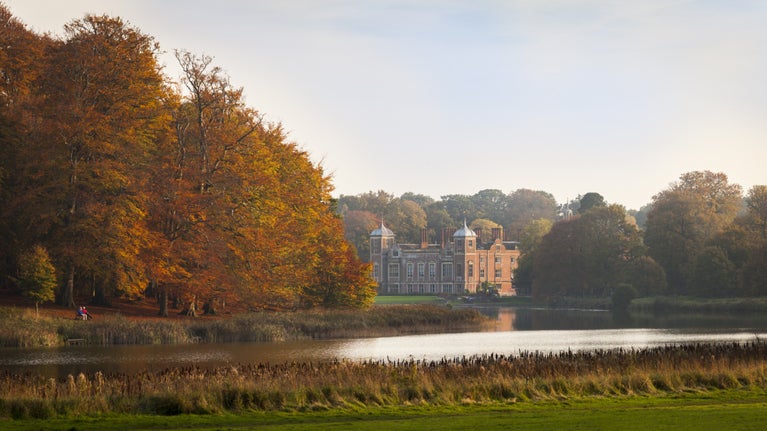
For everyone, for ever
We protect and care for places so people and nature can thrive. Find out who we are and what we stand for.

Renewable energy projects across Wales are helping to tackle climate change and protect the treasured places we care for. From solar panels on castle roofs to the largest electricity-generating wheel in Europe, learn how projects in Wales are helping cut carbon emissions and saving money for conservation.
The National Trust has a mission to be net zero by 2030. To achieve this, we are working to dramatically reduce our use of fossil fuels at properties and places across the UK. Our work so far has cut down on carbon emissions, made sites from castles to cottages more sustainable and saved money to plough back into conservation work.
Nationally, we aim to save an estimated £4 million on energy bills each year and every penny will go towards safeguarding our nation’s heritage.
For centuries the mountains, woodlands and waters of Wales have nourished its inhabitants and inspired generations of visitors. Now we’re unlocking the landscape's clean energy possibilities. By harnessing the elemental resources of land, sea, and sky we’re powering the places we care for, while continuing to look after the environment.
Burning wood to produce warmth and building mill wheels to harness water power are practices as old as the hills in Wales. Today we’re updating these old technologies as well as introducing the use of new ones like solar power.
Tapping into renewable energy makes business, conservation and environmental sense and our award-winning National Trust Wales team is paving the way for the rest of our organisation and others.
We’re working alongside local people, government agencies and the scientific community, and in partnership with the Trust’s renewable power supplier Good Energy. These are some of the schemes we’re developing and supporting to deliver clean energy in Wales:
Our nationally co-ordinated approach on the development of renewable energy in Wales, emphasises good practice and helping conservation. These are some of the exciting projects under way across the country to help combat climate change.



We protect and care for places so people and nature can thrive. Find out who we are and what we stand for.
We’re carefully managing meadows across Wales to help them to thrive. Find out more about our work and discover where you can see meadows in Wales.

Discover how our nature friendly farming practices are protecting rare habitats and species, preventing floods, and helping wildlife thrive in Wales.

Find out how we’re looking after 157 miles of Welsh coastline for future generations, from protecting wildlife habitat to adapting to the challenges of climate change.

Learn about conservation shepherding, restoring water vole habitat and how blanket bogs are playing a vital role in flood management at farms in Eryri (Snowdonia).
